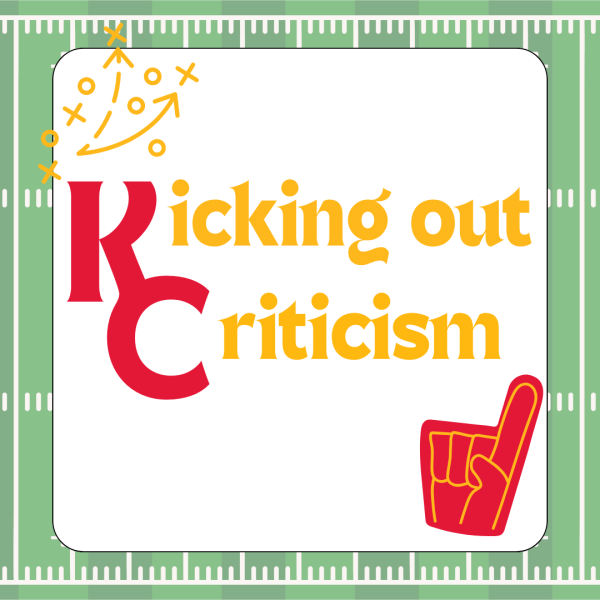College Crisis: Attending a four-year university should not be the expectation for all students
In our affluent Johnson County public school community, the average expectation after high school is to attend a four-year university then proceed into the workforce. However, for many students, college is not the most convenient option to support the plans they have for their futures.
There are so many alternate opportunities that are often ignored, saving so many people from years of student loan debt, and other risk factors such as becoming a college dropout or on longterm unemployment. The goal of the Blue Valley School District is that every student feels as though they have the tools to do what they need in order to be successful. Contrary to popular belief, that does not have to be college. One staff member at school who strongly supports this is counselor Kelli Baucom.
“Matching students with the right post-secondary [education] option for them is very important,” Baucom said. “I think sometimes students just don’t know that there is another option. If they don’t like school, then the last thing you want to do is more of it someplace else.”
Along with trade schools, technician degrees and real estate licenses, enlisting in the military is a great option for students to pursue after they graduate. Senior Nicolas Moore is one who does not plan on attending a university after he receives his diploma, and has rather chosen to explore joining the Air Force.
“A lot of [my peers] are always talking about what college they’re going to go to, what their major is going to be and if they need to work on their grades so they can get into the college they want to get in to,” Moore said. “It’s nice because I don’t really have to worry about it too much.”
Testing and college application processes are notorious for giving high school students tremendous amounts of test anxiety, and can greatly affect their final scores. The amount of pressure put on students to get perfect grades, take AP classes and maintain a perfect attendance record just solely for the purpose of impressing colleges, is not something everybody is willing to go through.
“It’s a lot of anxiety and a lot of stress to achieve a number and a score and to compare yourselves to other students on a test,” Baucom said. “We have plenty of really bright students who achieve and do wonderful things at school here on a daily basis, but that doesn’t always come across on a standardized test.”
The inclination to go to a specific college, or just go to a university, in general, can also be strongly influenced by someone’s parents. If one or both parents went to college, there will most likely be an expectation for that student to attend a college, too. Perhaps even the same one their parents attended. There is also a large concern with scholarships by the result of parents not wanting to pay or not being able to pay for their children’s entire tuition. This is entirely understandable because college debt can sometimes be paid off over the span of 10-20 years after graduation, depending on the degree.
“My parents actually wanted me to [go to college] initially because they at one point wanted to be in the military themselves, but instead went to college,” Moore said. “They told me that I would have a better life if I went to college, but I just didn’t want to.”
Not only does the Blue Valley School District strongly encourage attendance to college fairs, and taking the ACT or SAT prep courses, but it has an entire class time built-in every even block day to do college and career planning lessons on a website called Naviance. District Administrator David Stubblefield works very closely with outside sources in order to provide students with a way to explore alternate career options. He said he believes it is very important for students of all ages to have a tool to help plan out their time during and after high school.
“We know that college is not for every single student,” Stubblefield said. “Over the last few years as a district, we have worked really hard on personalizing new experiences for our kids; such as our partnership with Johnson County [Community College] that we established this year. Students who are interested in a variety of different careers will be able to register and have a more focused curriculum on whatever job they choose.”
Naviance, along with College Now courses and collaboration with Johnson County Community College can definitely be helpful to students who know they will be attending a university. However, when a student who is not planning on going to college has to sit through an entire class revolving around college preparation, it can make them feel as though their school is not supporting their ideas for an alternative career path.
“The whole Naviance thing is weird to me,” Moore said. “The [counselors] forced me to sign up for all of the stuff and go in to choose a specific college but I’m not even going so I don’t really know why they make me do it.”
There should be a purpose to Naviance even if a student doesn’t plan on attending college. There is a career path exploration option on the application itself, but it seems to be more focused on the college research aspect of it.
“College can [turn you into] your income potential,” Baucom said. “That doesn’t necessarily mean success. It definitely has an impact on your long term earning potential, however, there are careers like welding for instance where you can go to school for two years to receive your certificate and immediately be making around 40,000 dollars a year. This compared to your counterpart who could still be in a four-year college and paying for college, that over time you kind of have to look at how that income adds up.”
Welding, along with countless other careers including the military can provide those students who don’t want to continue with a school for an extended period of time beyond what they are required to, with an income large enough to support themselves. The district is still currently searching for new ways that they can implement these programs into more high schools and begin to normalize post-high school opportunities that don’t include college.
“Our counselors are beginning to redirect some of those Naviance conversations because there is a career piece to it that often gets overlooked,” Stubblefield said. “They are trying to develop opportunities for students that fit their specific career profile.”
Aside from all of the seemingly useless Naviance lessons and worn out talk about our futures, the only thing that the staff at school truly wants is for every student to have the opportunity to achieve whatever they want. The goal of life is not to work a painful nine to five job just to pay the bills, but rather doing something that brings you joy and also supports your lifestyle along with it. For so many students it does not require a college degree, and I believe this should be more socially accepted and encouraged.
“You barely get any attention for joining the military or going straight into an outside job,” Moore said. “College has a lot more opportunities for better jobs in the future. It takes more time and it’s a lot of money, but that investment usually ends up in something pretty good. I just don’t feel like that is the right path for me.”







